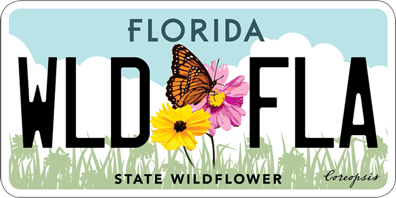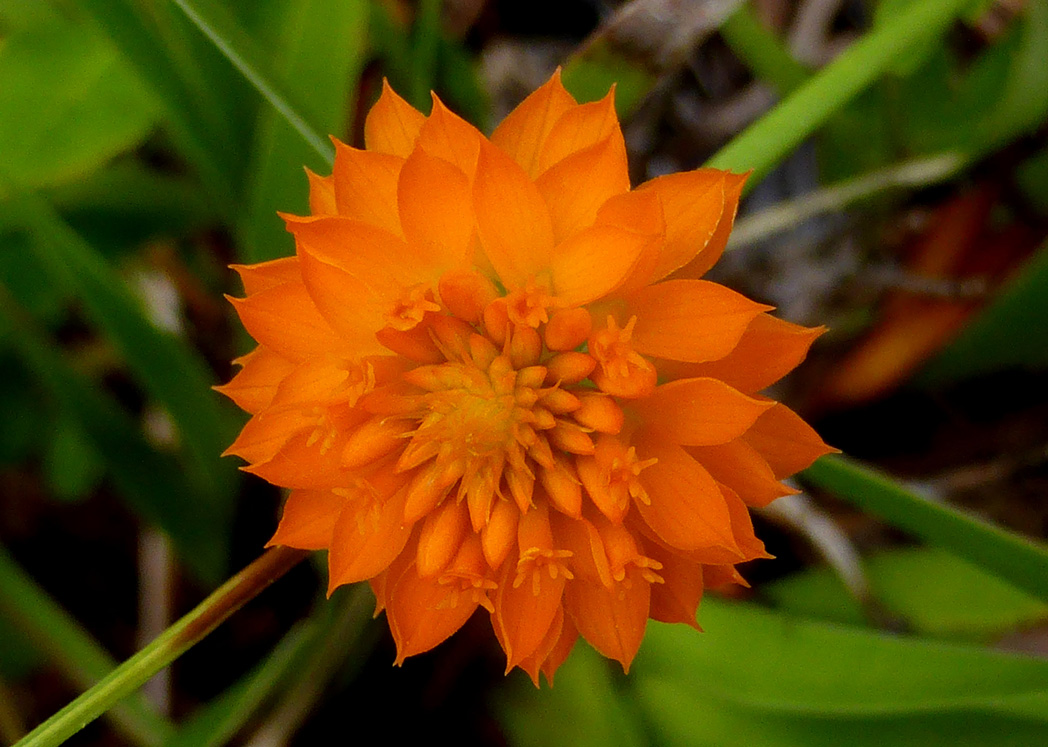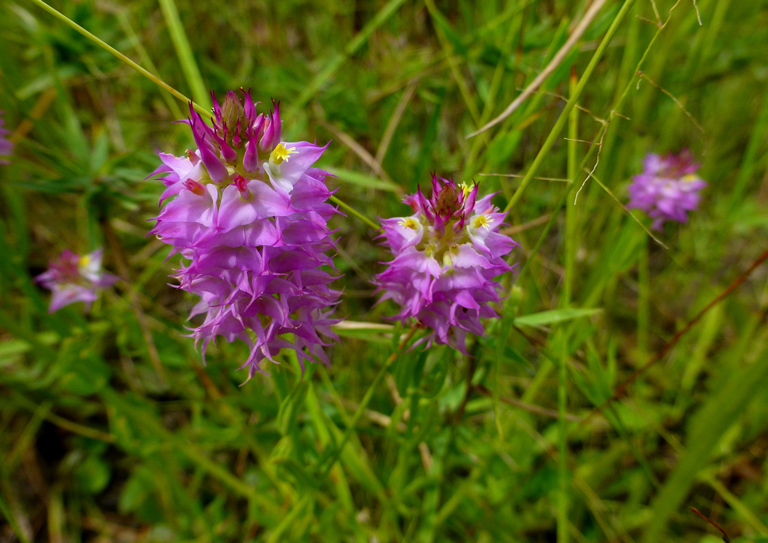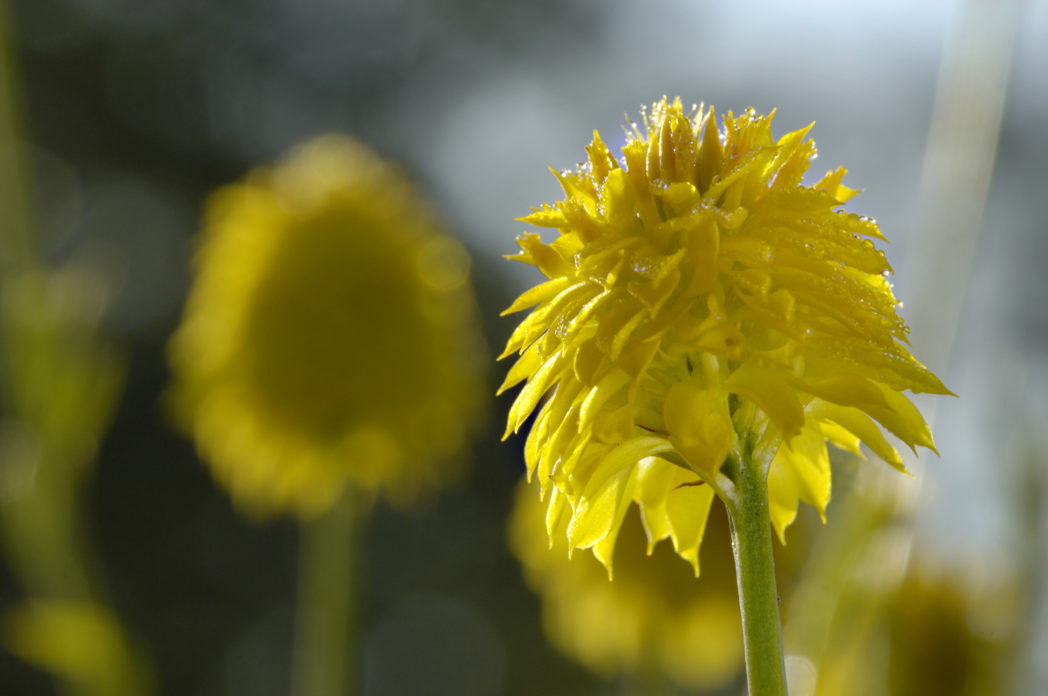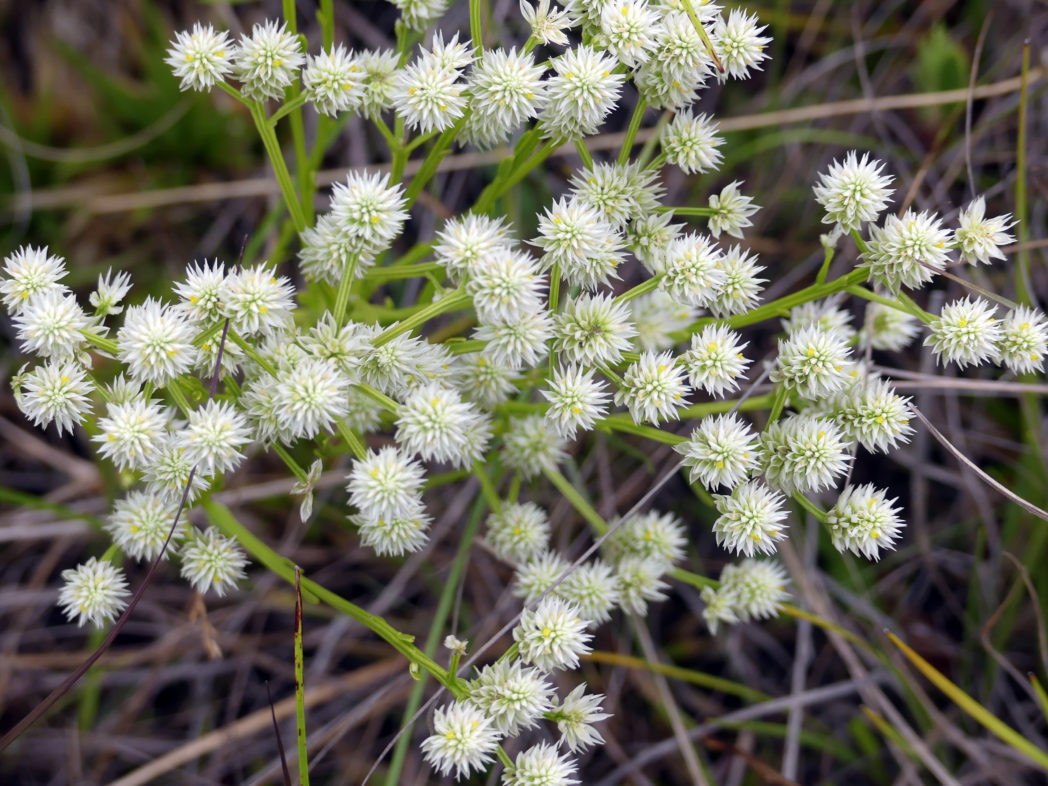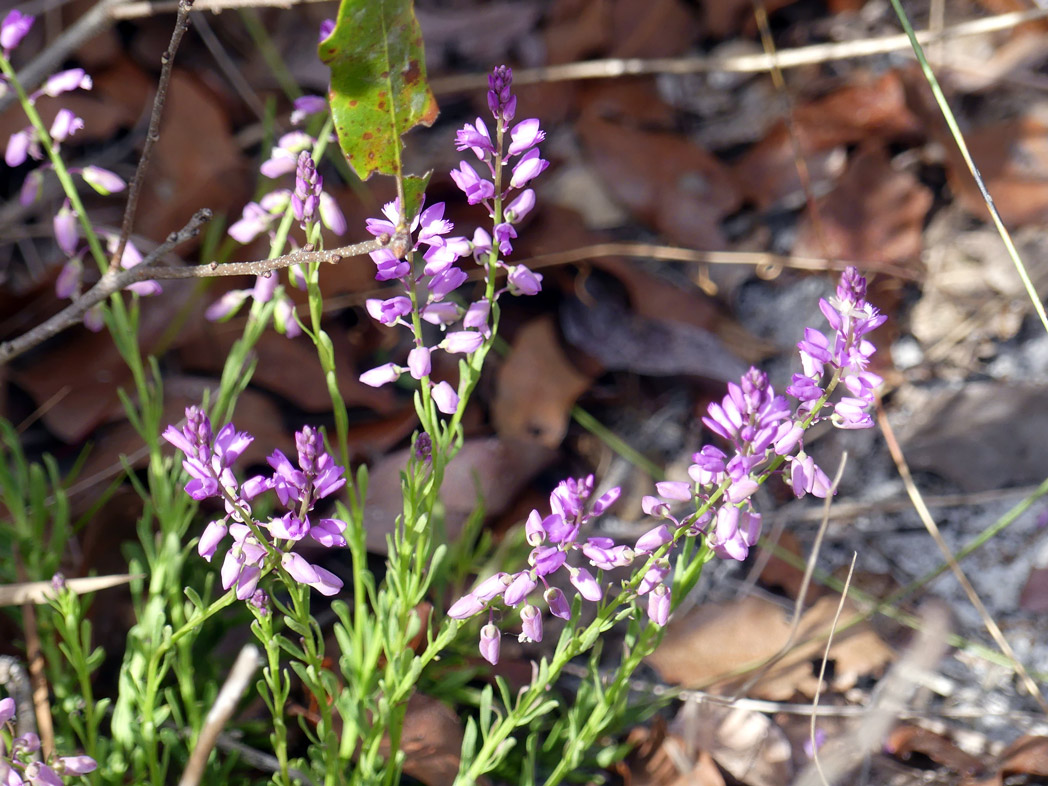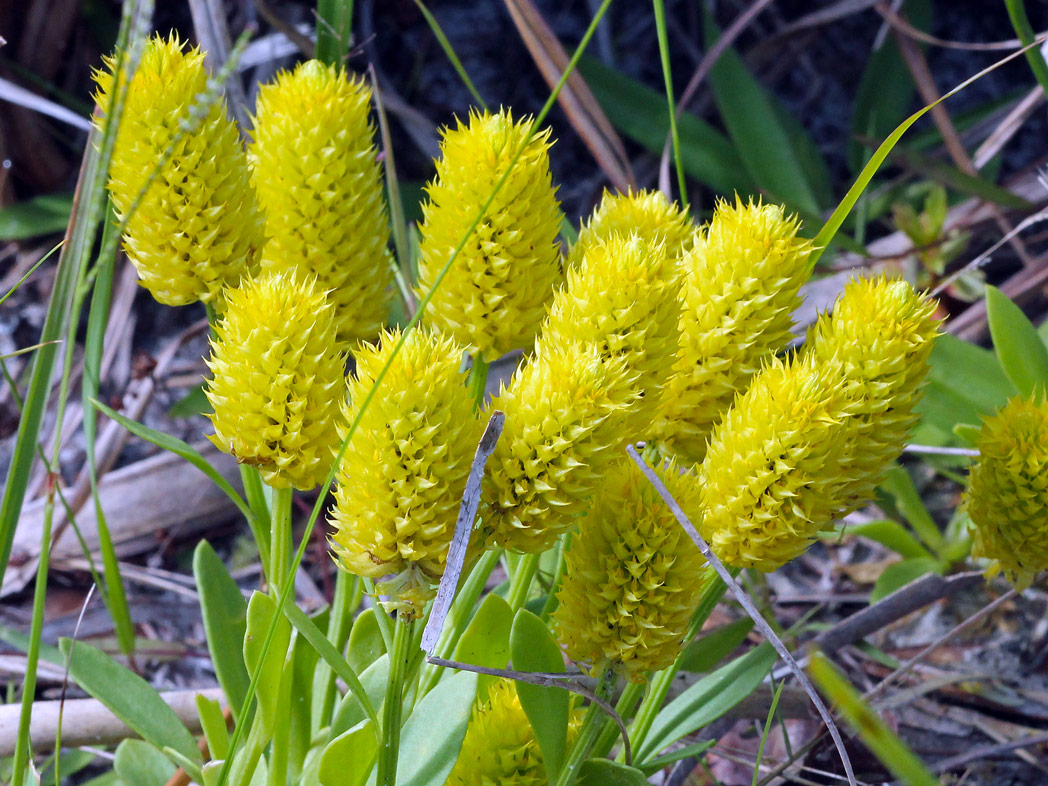Orange milkwort
Pictured above: Orange milkwort (Senega lutea) by Eleanor Dietrich. Click on terms for botanical definitions. View post as a PDF.
Orange milkwort (Senega lutea) is a short but showy wildflower found in bogs, savannas, pine flatwoods and roadside ditches throughout Florida. It typically blooms March through November, but can bloom year-round. Its flowers are self-pollinating. Its seeds are spread almost exclusively by ants. The seeds contain elaisomes — fleshy, oil- and protein-rich structures. Ants collect the seeds and take them to their nest where they and their larva consume the elaisomes, but leave the seed intact. The seeds are then tossed from the nest into favorable germinating conditions.
Orange milkwort’s bright orange flowers have three petals and five sepals. They are born in compact, thimble-shaped racemes atop long (1–2 inch) pedicels. Individual flowers are often indiscernible without magnification. Flowerheads are subtended by bracts. Basal leaves are thick, simple and spatulate with entire margins. Stem leaves are similar in shape, but smaller in size, becoming reduced as they ascend. Leaf arrangement is alternate. Fruit is a capsule. Roots have a minty aroma.
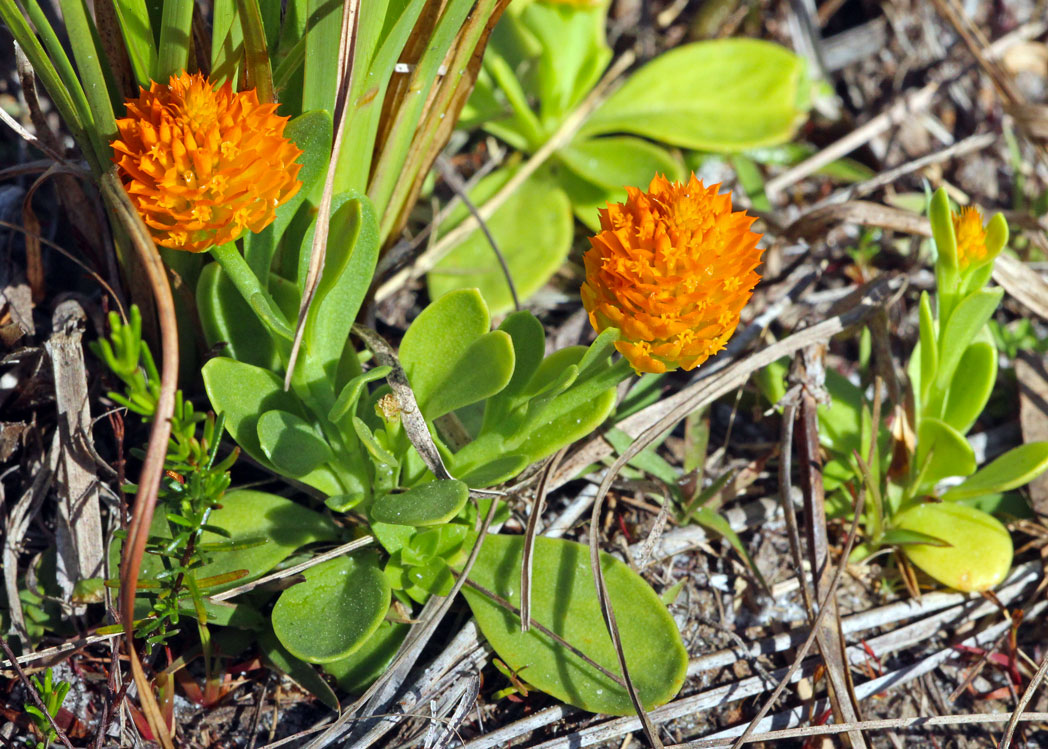
The species epithet lutea is from the Latin luteum or “yellow,” and refers to the flower’s color when dried. Like other species of Senega, Orange milkwort is sometimes referred to as bachelor’s buttons.
NOTE: Research published in 2023 assigned the New World clade of Polygala to the genus Senega (Pastore et al). This species was previously known as Polygala lutea and is likely still listed as such in many online and print resources.
Family: Polygalaceae (Milkwort family)
Native range: Nearly throughout
To see where natural populations of Orange milkwort have been vouchered, visit florida.plantatlas.usf.edu.
Lifespan: Annual
Soil: Moist to wet, acidic sandy soils
Exposure: Full sun to high pine shade
Growth habit: 3–8” tall
Orange milkwort is not commercially available. Visit a natural area to see it.
For information on other Senega species, see these resources:
